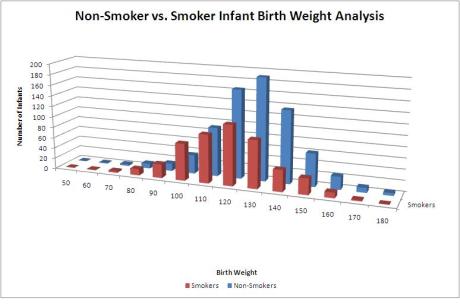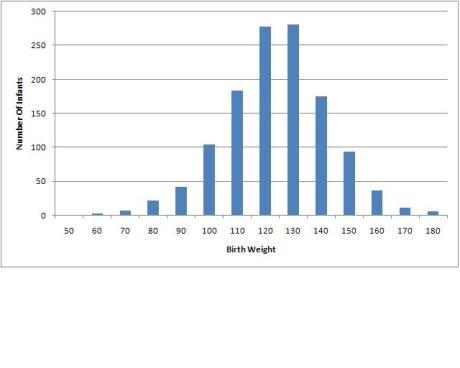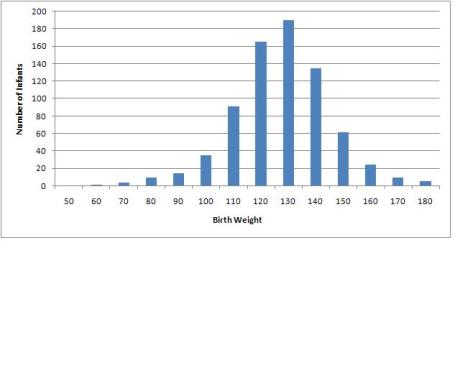Infant Birthweight and Smoking
January 28, 2009
Low Birth Weight may be Attributed to Smoking in Woman
Using data collected from a Berkley Study, smoking in woman may correlate to reduced birth weight in infants. The study was conducted using a total of 1236 recent births records. A total of 741 non-smokers and 483 smokers were included in the study. Data collected without a determined status of smoker or non-smoker was removed from the analysis, accounting for 12 undetermined recent birth weight records.
The graphs (below) exhibits a shift in birth weights of mothers who smoke in relation to mothers who do not smoke. Smoking mothers are more likely to have infants that are born with less birth weight. A sampling of birth rates were placed into preset birth weight ranges and tallied to compile the histogram below. The distribution was then taken and skewness was tested. Skewness determines whether the sample is evenly distributed around the mean or center point of the data. The skewness of the samples was calculated resulting in a positive skewness (.0336) for woman smokers and non-smokers had a lower skewness(.0187). Lower birth weights due to smoking occur more frequently below the median of the data. This suggests a lower birth weight has a relation to smoking. The data below was utilized to determine these results.

Birth weight of infants from Non-Smoking mothers

Birth weight of infants from smoking mothers

number mean smoker 114
mean non-smoker 123
median smoker 110
median non-smoker 115
smoker standard deviation 18.1
non-smoker standard deviation 17.4
Overall Skewed -.014
Non-smokers -.0187
Smokers -.0336
STANDARD DEVIATION
Skewness 